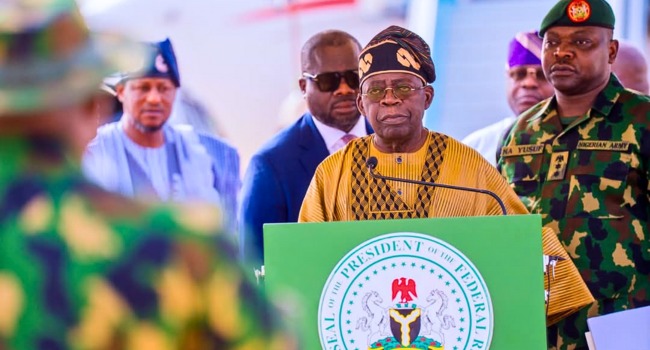POLITICS

PRESIDENT TINUBU’S SECOND-YEAR ANNIVERSARY SPEECH
Tinubu: Economic Reforms Taking Root, Security and Healthcare Gaining Ground
President Bola Tinubu has defended his administration’s economic reforms, declaring them effective in steering Nigeria towards recovery and long-term stability. In a national address marking two years since assuming office, Tinubu said the challenges inherited in 2023 demanded bold action, and that the “Renewed Hope Agenda” is beginning to yield measurable results.
“When we embarked on this journey, propelled by faith in Nigeria’s unity and progress, I pledged to confront our challenges head-on,” Tinubu said. “Today, I proudly affirm that our economic reforms are working. We are building a more stable, resilient nation.”
The President said removing fuel subsidies and unifying foreign exchange rates—policies that drew early criticism—were necessary to prevent economic collapse. He credited these steps with stabilising the economy and narrowing the fiscal deficit from 5.4% of GDP in 2023 to 3.0% in 2024.
Key indicators, he noted, have begun to improve: inflation is easing, rice and staple food prices are falling, and the oil and gas sector has seen over $8 billion in new investments. Oil rig activity is up more than 400% compared to 2021, while gross revenue hit over ₦6 trillion in Q1 2025.
Nigeria’s external reserves rose from $4 billion in 2023 to over $23 billion by the end of 2024, Tinubu said, while debt service-to-revenue ratios dropped sharply. The President also highlighted the discontinuation of Ways & Means borrowing and improved performance from the NNPC as signs of fiscal discipline.
Tinubu pointed to significant gains in tax reform, with Nigeria’s tax-to-GDP ratio rising from 10% to over 13.5% in 2024. Tax policies now exempt essential goods and services like food, education, healthcare, rent, and renewable energy from VAT, while small businesses benefit from simplified processes and fewer levies.
“We are ending the era of wasteful and opaque tax waivers,” he said, noting that new incentives are now targeted at manufacturing, tech, and agriculture. He also announced the creation of a Tax Ombudsman to protect vulnerable taxpayers.
Emphasising youth empowerment, Tinubu said a friendlier tax environment is being shaped for digital jobs and remote work. Reforms to trade logistics, including the National Single Window, are also improving Nigeria’s competitiveness globally.
On sectoral development, Tinubu said the administration had revived the solid minerals sector, attracted investment, and embraced value-added policies. In healthcare, he highlighted the revitalisation of over 1,000 primary health centres and the ongoing upgrade of 5,500 more. Six new cancer centres are underway, and health insurance coverage has expanded from 16 million to 20 million Nigerians.
The President cited GDP growth of 3.4% in 2024—Nigeria’s strongest in a decade—and credited deliberate reforms for renewed momentum.
On security, Tinubu stressed that economic growth depends on stability and safety, reaffirming his administration’s commitment to protecting lives and property. He praised the armed forces for reclaiming territories from bandits in the northwest and restoring safety to key travel routes and farming communities.
“Even if we do not thank them often enough, they willingly face danger so we can live without fear,” Tinubu said, saluting the country’s security forces.
He pledged continued vigilance and cooperation among security agencies to defeat emerging threats, adding, “Every Nigerian deserves to live without fear.”
"This represents a significant development in our ongoing coverage of current events."— Editorial Board









